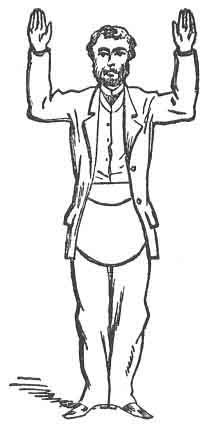Freemasons Created the Game of Football
One of these Masonic created games that we know of as an English national pastime, is the game of Football. The Football Association was founded on 26 October 1863 at the Freemason's Tavern (Arms) in London. This English game of ball then gave rise to a modern-day gladiator type sporting event played by men in tights and pads, with fierce-looking padded Spartan like helmets in an arena known as American football.
 Here is a brief explanation about the origins of football from 33rd Degree Mason, Christopher L. Hodapp who is the author of "Freemasons For Dummies," and "Solomon's Builders: Freemasons." He says on his blog: "Association football
was born in 1863 at the Freemason's Arms Pub near London's Covent
Garden, at 81-82 Long Acre. Six meetings were held at the pub to decide
on rules and structure, and the meetings ended with a split between the
new Football Association ("soccer" is said to be a truncated version of
"association") and the proponents of different rules that became rugby.
Here is a brief explanation about the origins of football from 33rd Degree Mason, Christopher L. Hodapp who is the author of "Freemasons For Dummies," and "Solomon's Builders: Freemasons." He says on his blog: "Association football
was born in 1863 at the Freemason's Arms Pub near London's Covent
Garden, at 81-82 Long Acre. Six meetings were held at the pub to decide
on rules and structure, and the meetings ended with a split between the
new Football Association ("soccer" is said to be a truncated version of
"association") and the proponents of different rules that became rugby.The first game played in the states was at a Princeton-Rutgers football game in 1869 that was held under England's "Football Association" rules, better known in North America as soccer. Later in 1874 the rules changed more to be like English rugby.
Both Freemasons and football players use special signals like that of the master mason sign seen on the above left, and the sign a referee makes for a goal. Masonic orders and football leagues are special societies for men only who wear special uniforms and have meetings, rituals under a highly formalized set of mysterious rules. Meetings begin and end at appointed times, and are presided over by a grand master or manager. Membership into the order or on the team is organised into a hierarchical structure in which the groups compete for honours and other benefits, and to get on the team, you must ask one to be one.
Here is some more research from the Playing Rules of the McGill University Football Club, April 1874;
"Until a few years ago, the methods of playing football were varied and numerous, but the game has finally settled into two distinct styles – the Rugby rules and the Association rules.
The object of the Association code is to encourage “dribbling”, and simplicity has also been carefully studied by the abolition of all clauses and technicalities calculated to prevent the easy comprehension of the rules; the Rugby laws are much more extensive and elaborate, and the main idea is to encourage speed of foot with a minimum of kicking, besides, there being an atmosphere of danger in the “hacking” and “mauls” so dear to every player more Rugbeinsi.
We today publish a copy of the College rules, revised and amended up to April, 1874, and these will make the chief features of our game apparent to everyone. They disagree very materially with the rules of the Canadian Association, and while we regret our exclusion from playing for the Champion Cup, yet we feel bound, both by honour and inclination, to stick to our own game, which seems always to have suited our men peculiarly well."
